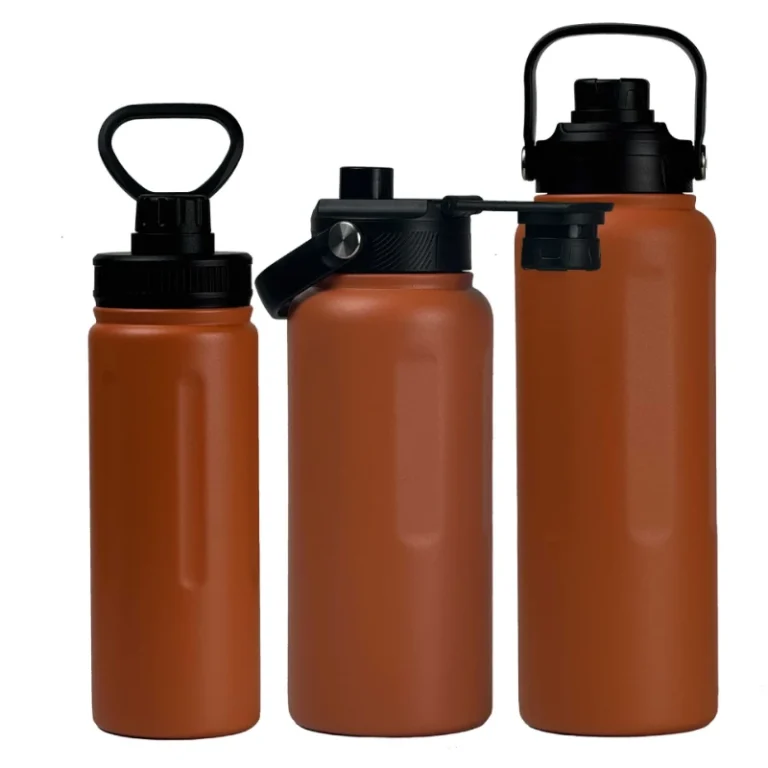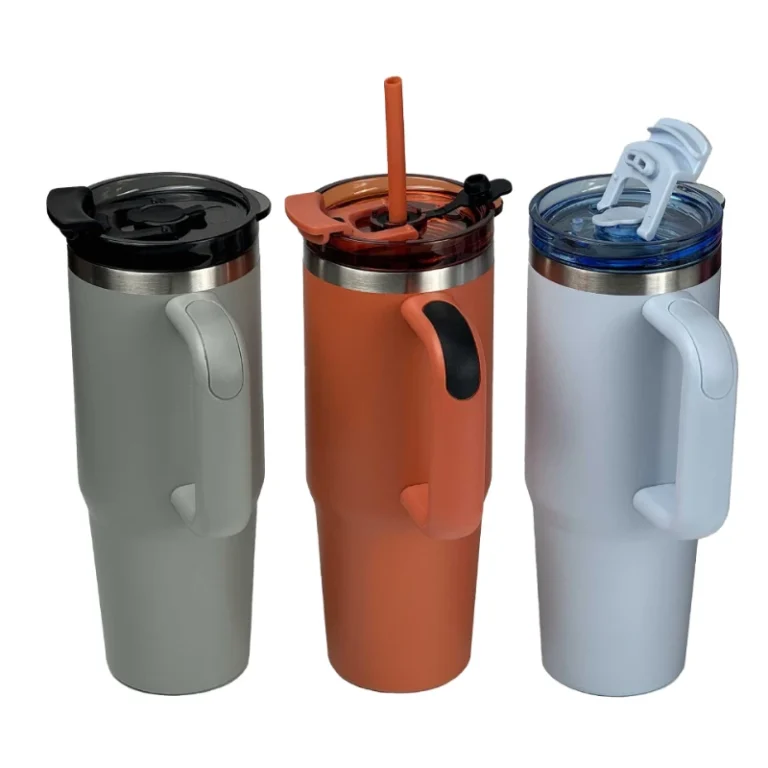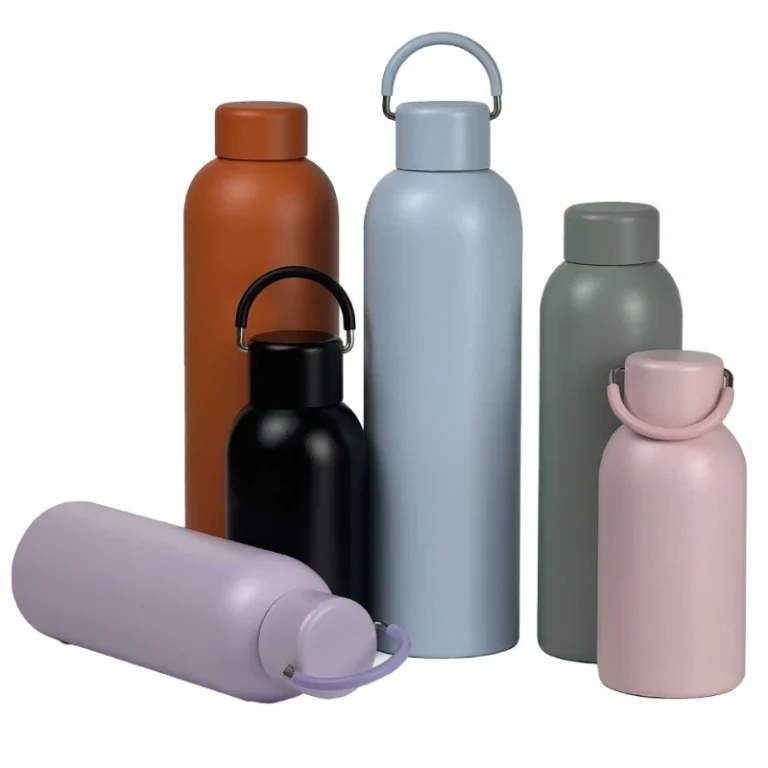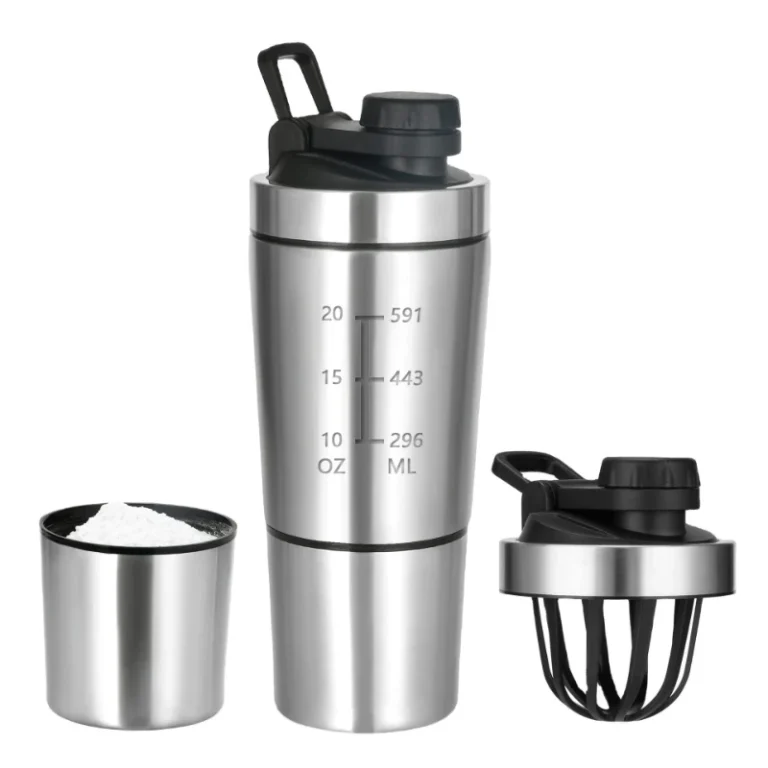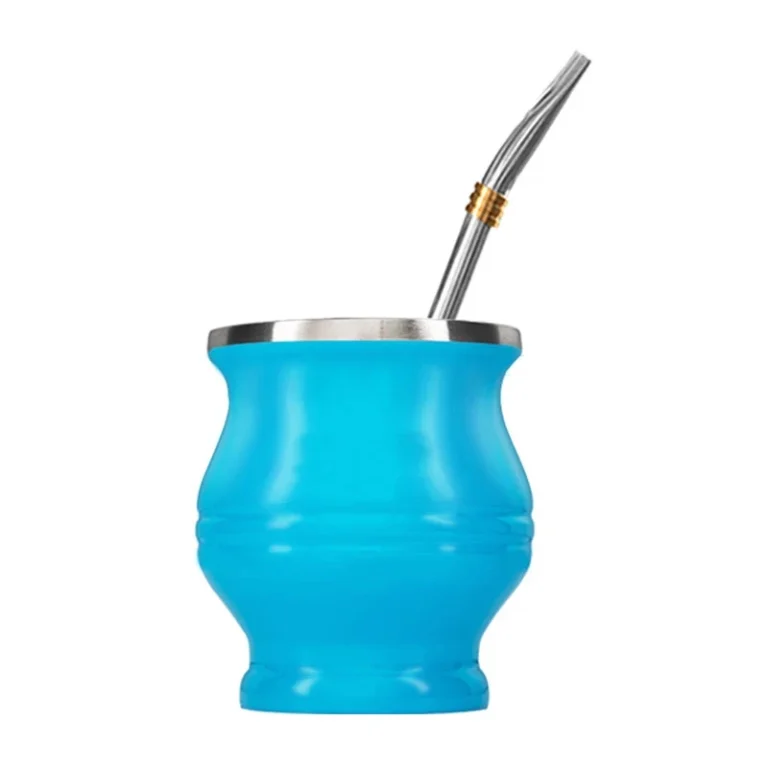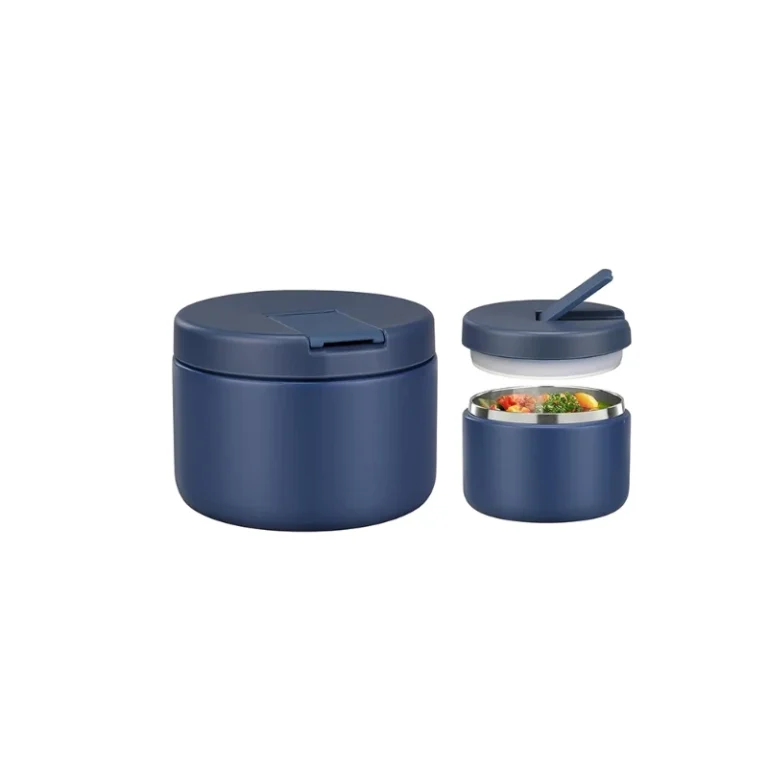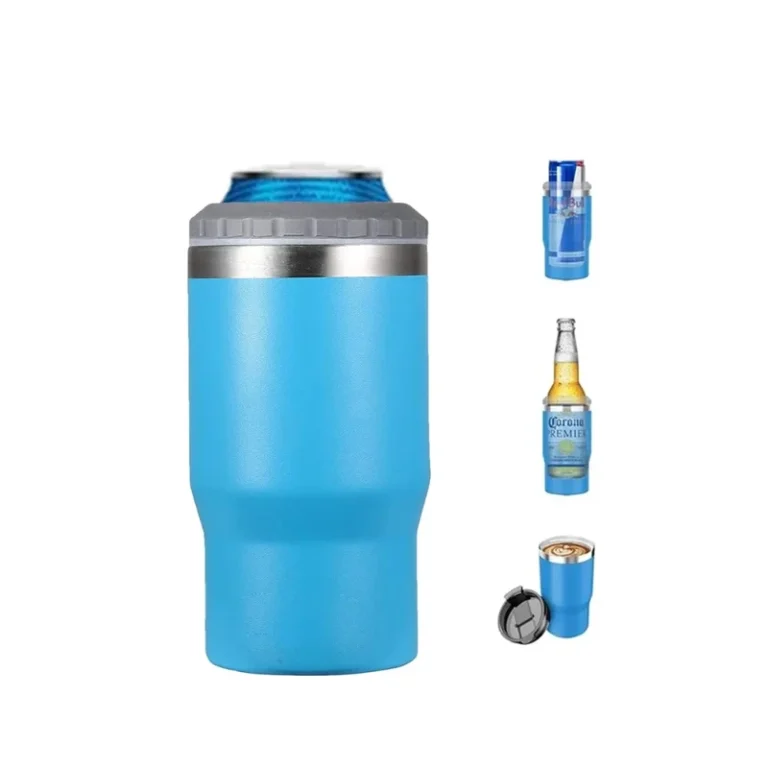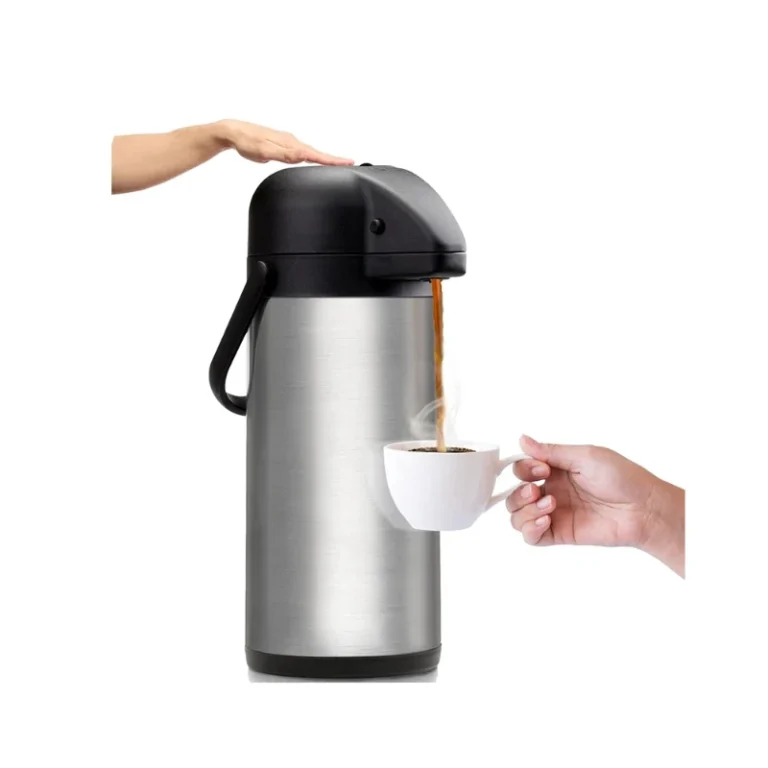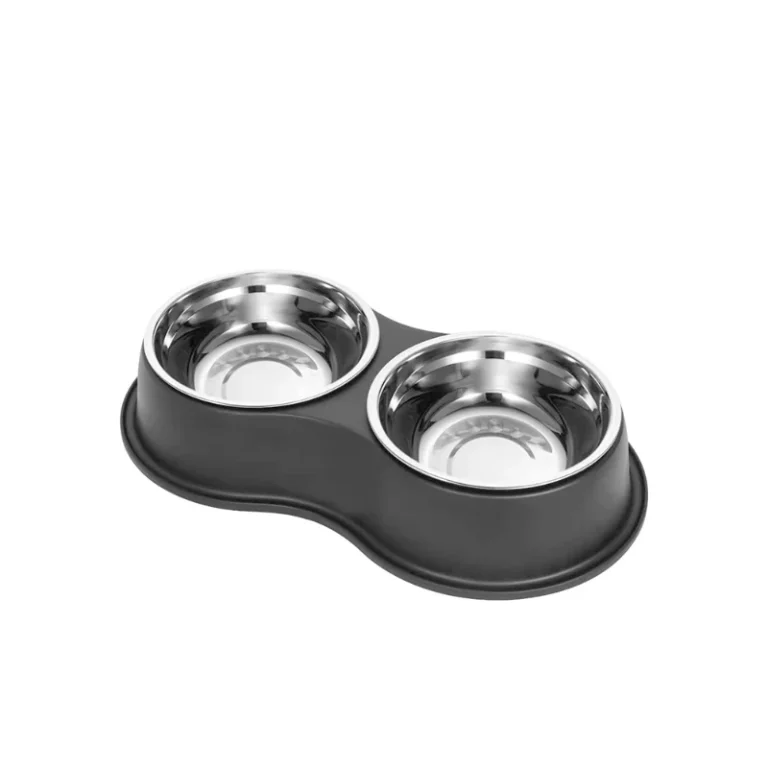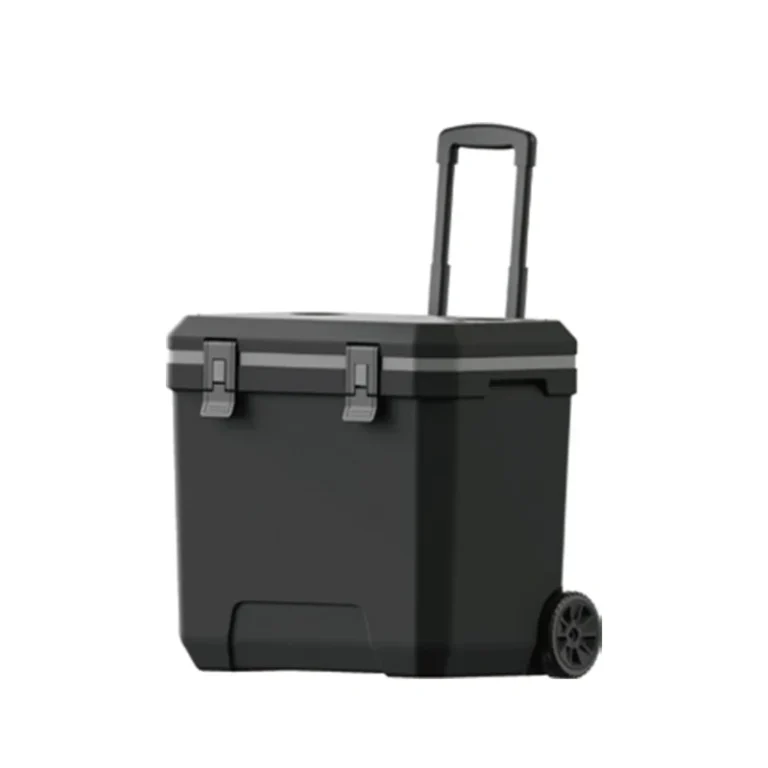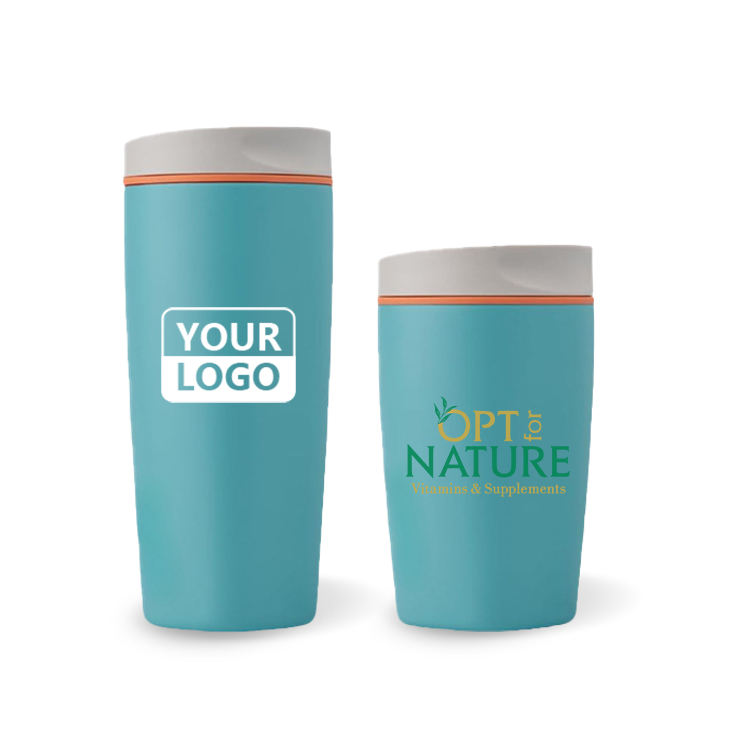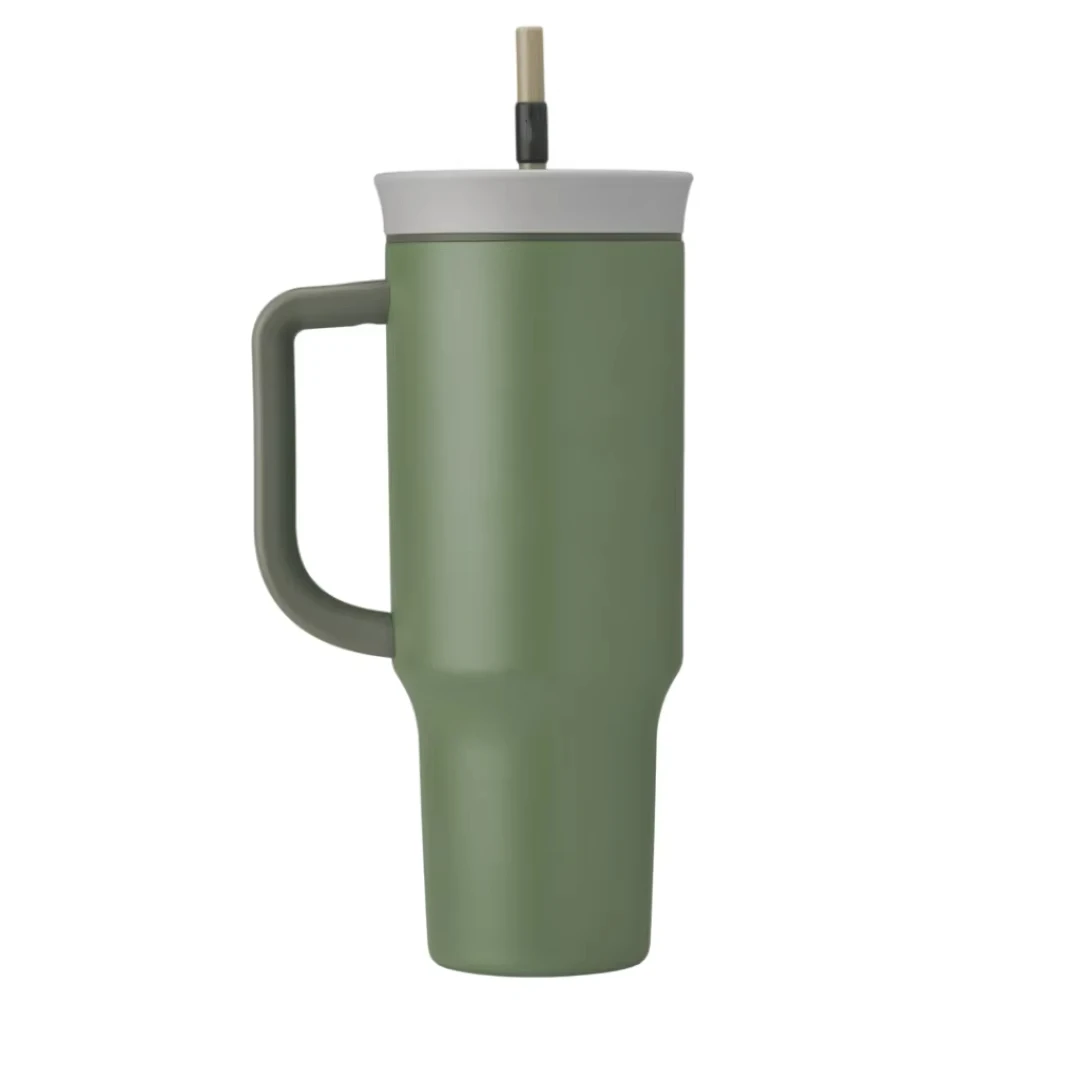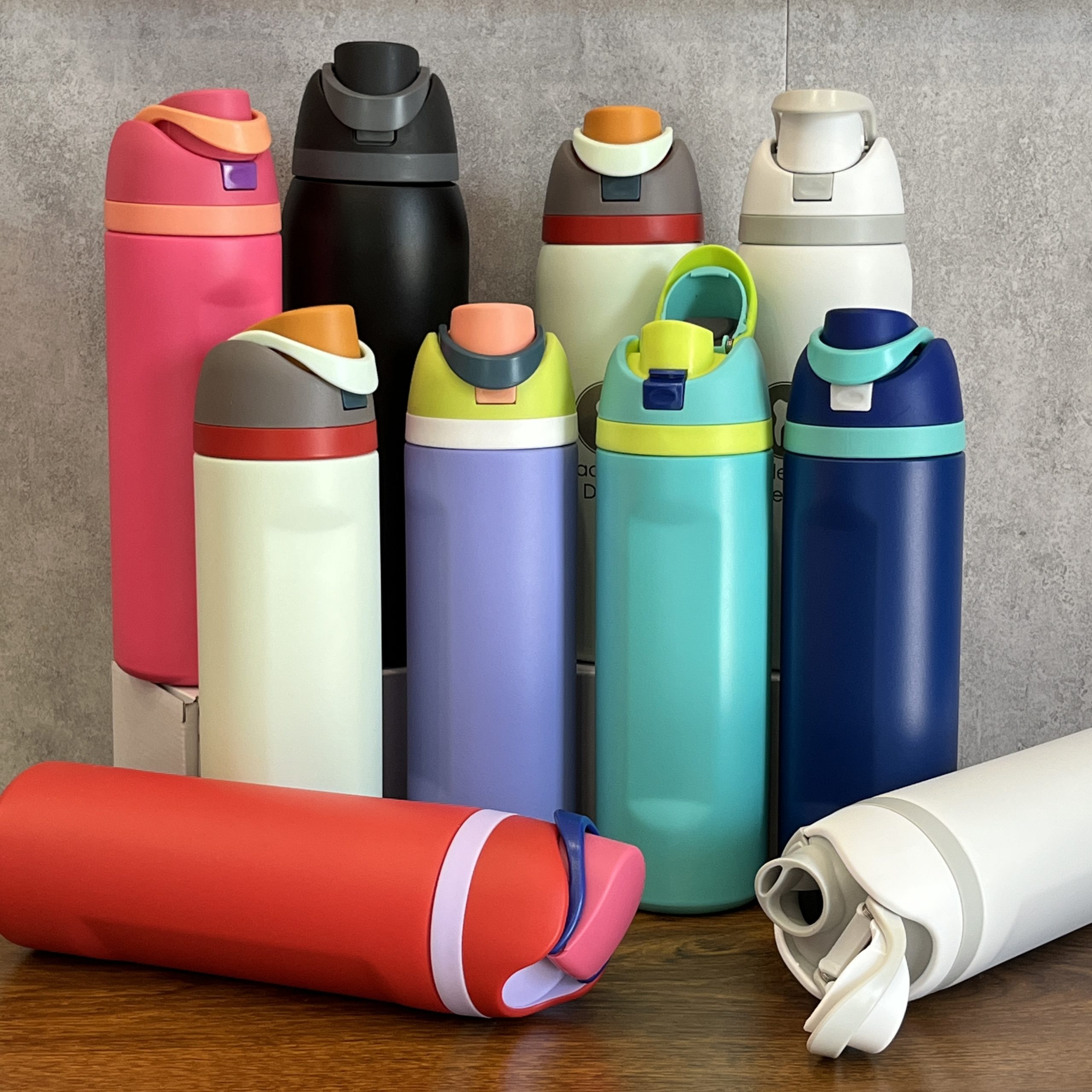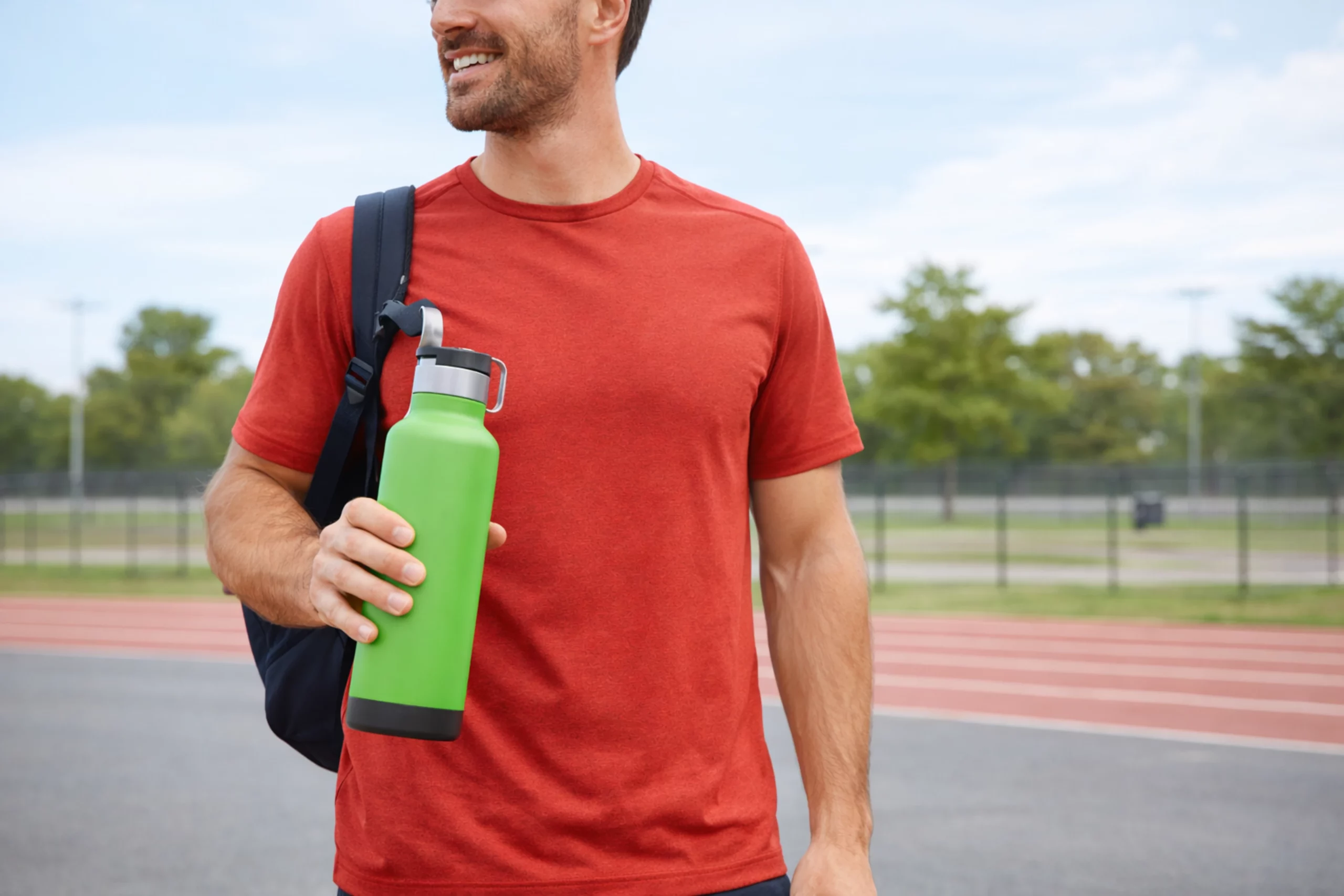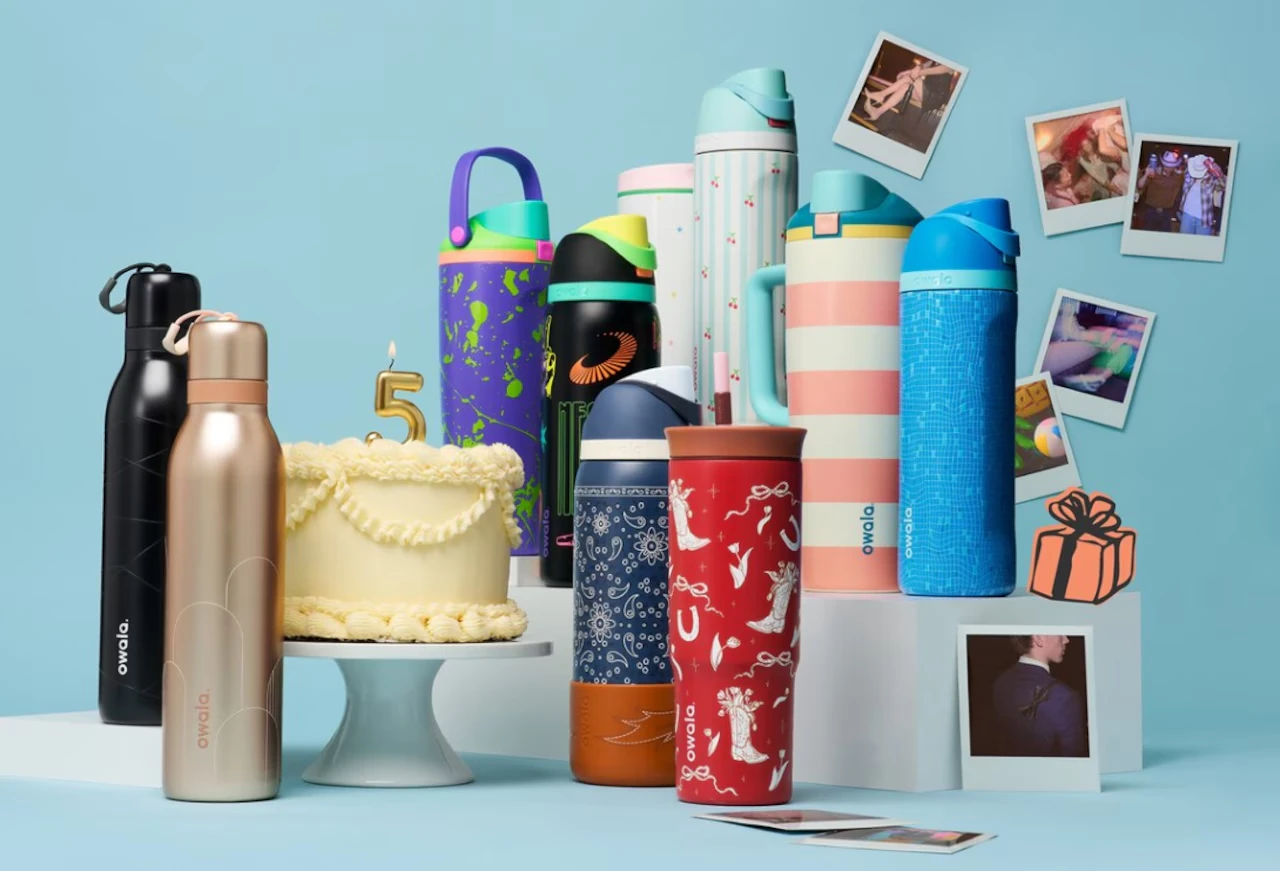
Spill Resistance and Functional Design
A key differentiator for Owala is its emphasis on leak-proof performance. The FreeSip spout—a proprietary feature—enables two drinking methods: sipping through a straw or drinking directly from the rim. This design not only improves usability but also incorporates seals and lids engineered to minimize leakage. Such functional sophistication requires precision molding, additional components, and stricter quality control—all of which influence the unit cost.
Additionally, the bottle’s handle is shaped for comfortable carrying, making it suitable for everyday use. These design elements require extra material and prototyping investment, yet Owala manages to keep retail prices accessible, particularly compared to premium competitors.
Owala water bottles: Cost Breakdown
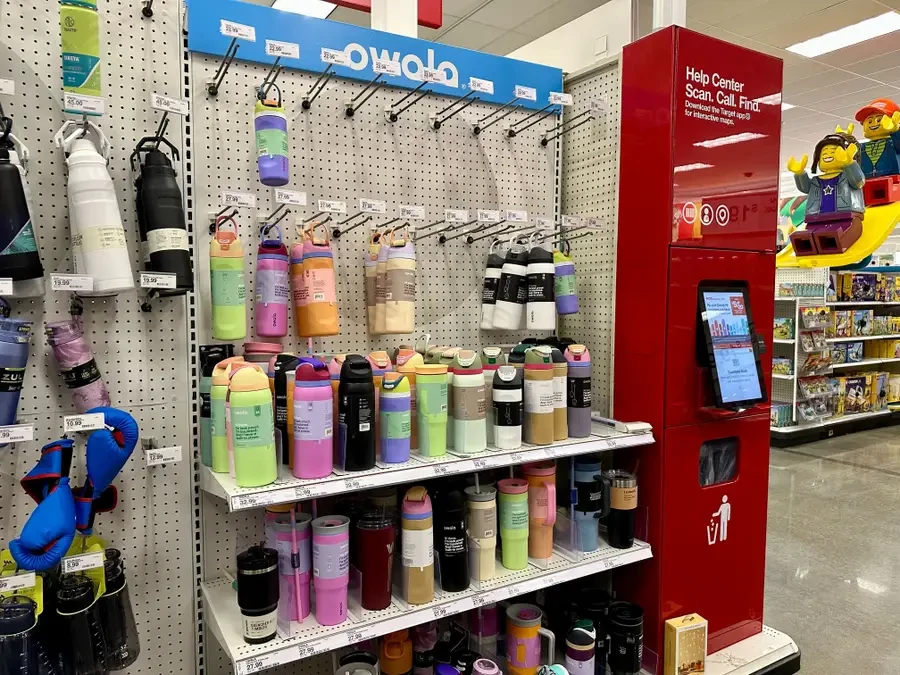
Cost Breakdown: From Factory to Shelf
Manufacturing Cost Range:
Owala bottles are produced through contract manufacturing partners in China, such as Anhui IFUN and Everich Holdings. These suppliers employ automated production lines and benefit from economies of scale, helping keep base production costs between $2.00 – $5.00 per unit.
This estimate accounts for:
Materials: High-grade 18/8 stainless steel, BPA-free plastics for lids and straws
Labor: Skilled assembly under regulated working conditions
Basic Packaging: Simple carton or polybag
This cost does not include shipping, import tariffs, marketing, or distributor margins.
Wholesale Pricing
Wholesalers typically purchase Owala bottles at $6 – $10 per unit, depending on order volume and customizations (e.g., logo imprinting, exclusive colors). This price helps the manufacturer cover overhead, quality assurance, and modest profit margins.
Retail Markup
The final retail price commonly ranges from $20 – $35. This markup accounts for:
- Shipping and logistics
- Import duties (especially in the U.S. and EU)
- Marketing campaigns and influencer collaborations
- Retailer profit margin
- Customer service and warranty support
Unit Price: USD 2.50~3.99. Leave online message or send email to info@customizedwaterbottles.com to order.
Here’s a simplified cost structure table based on industry benchmarks and disclosed manufacturing practices:.
|
Stage |
Typical Price per Bottle |
What’s Included |
|---|---|---|
|
Manufacturing |
$2.0 – $5.0 |
Materials, labor, packaging |
|
Wholesale |
$6.0 – $10.0 |
Shipping, supplier margin |
|
Retail |
$20.0 – $35.0 |
Shipping, tariffs, marketing, retail profit |
Manufacturing Location & Its Impact
Why China?
China remains the global hub for stainless steel bottle production. Regions like Zhejiang and Guangdong host factories with decades of experience, mature supply chains, and significant production capacity. These facilities are equipped with advanced stamping, welding, and insulation technology, enabling high output consistency and rapid turnaround.
Lower labor costs—compared to the U.S. or Europe—coupled with bulk material sourcing further reduce expenses. It’s estimated that producing the same bottle in the U.S. would increase manufacturing costs by 30–50%.
Certifications & Compliance
Reputable manufacturers—including those producing Owala—comply with international standards and certifications, such as:
-
ISO 9001: Quality management systems
-
FDA Compliance: For food-contact materials (note: the FDA does not “approve” bottles but sets standards for materials)
-
LFGB & EC1935/2004: European food safety standards
-
BSCI/SA8000: Social accountability and ethical manufacturing audits
These certifications require rigorous factory audits, material testing, and continuous compliance, which slightly add to costs but ensure product safety and quality.
Stainless Steel Insulated Customized Water Bottles with 2 in 1 Lid 1081602W
Unit Price: USD 2.50~3.99. Leave online message or send email to info@customizedwaterbottles.com to order.
Design, Materials & Brand Strategy
Materials Breakdown
-
Stainless Steel: Makes up the body; 18/8 steel is corrosion-resistant and durable
-
Lid & Straw Components: BPA-free Tritan™ or food-grade silicone
-
Insulation: Double-wall vacuum insulation for temperature retention
Material costs constitute approximately 40–50% of the manufacturing expense.
The FreeSip Spout
This patented feature requires custom molds, multi-part assembly, and additional quality checks. While it increases per-unit cost, it also serves as a unique selling proposition that justifies a higher retail margin.
Color & Customization
Owala offers limited-edition color drops and encourages mix-and-match lid and body combinations. This strategy fuels collector engagement and repeat purchases but involves smaller batch production runs, which can raise costs slightly compared to standard models.
Marketing Approach
Owala relies heavily on social media and user-generated content. Collaborations with influencers and vibrant visual marketing help the brand maintain a fresh and trendy image, especially among younger consumers. These efforts are factored into the retail price.
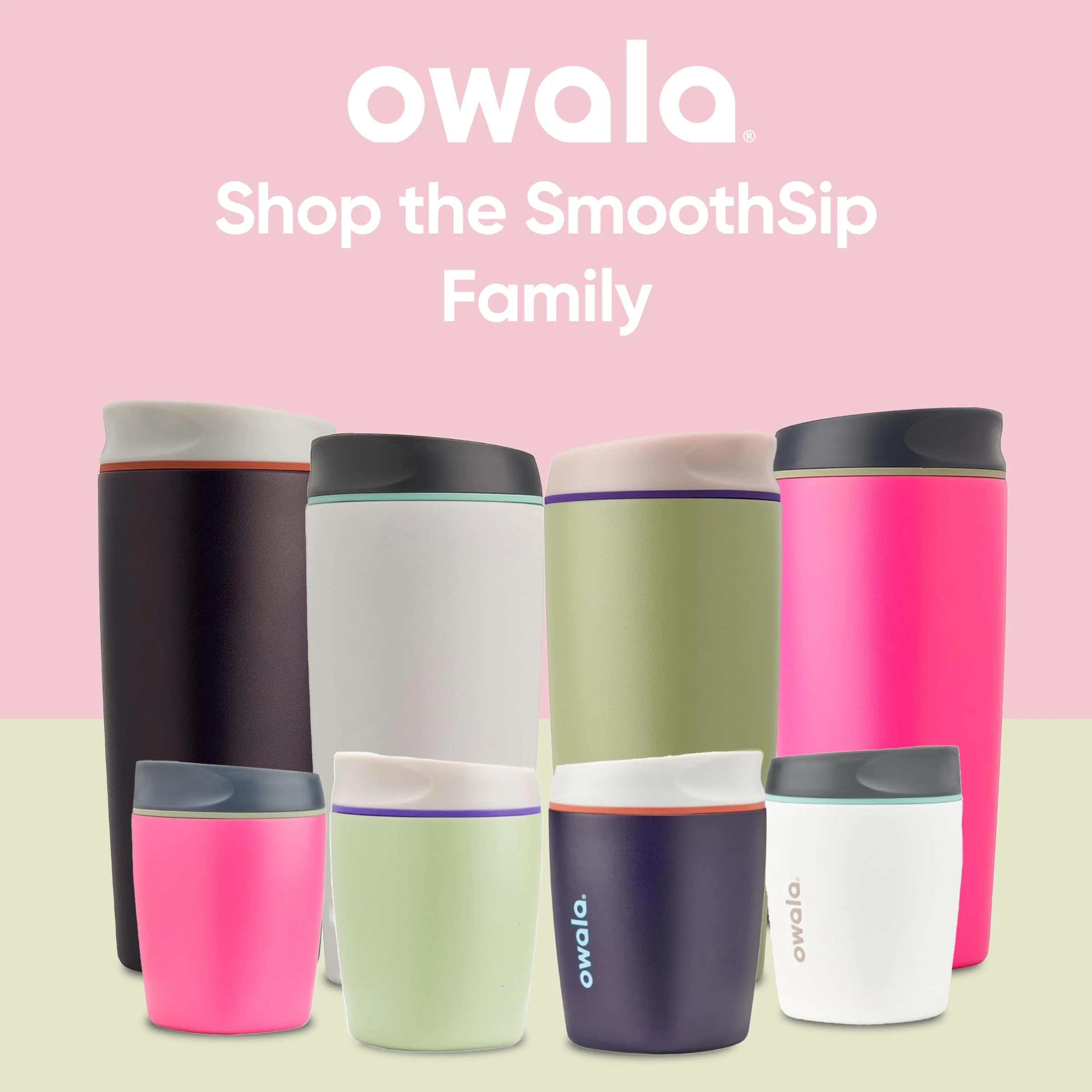
Comparison with Competing Brands
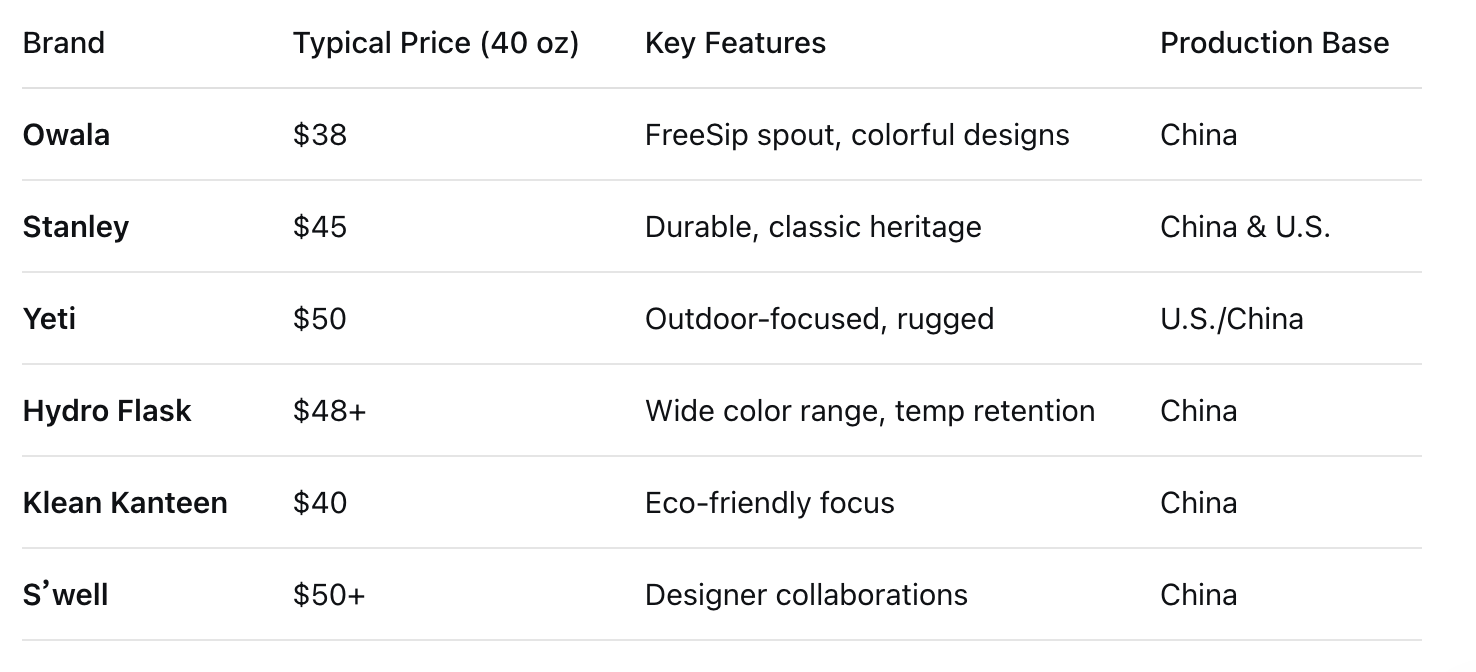
Owala positions itself as a mid-range option with an emphasis on innovation and style rather than extreme durability or luxury appeal.
Stanley
Stanley is a well-known name for drinkware. The Stanley Quencher H2.0 Flowstate, 40 oz, costs $45. Owala Tumbler and Owala FreeSip Water Bottle, both 40 oz, cost $38 each. The table below shows how much each bottle costs:
|
Product |
Price |
|---|---|
|
Stanley Quencher H2.0 Flowstate, 40 oz |
$45 |
|
Owala Tumbler, 40 oz |
$38 |
|
Owala FreeSip Water Bottle, 40 oz |
$38 |
Stanley bottles use thick stainless steel. They are made to last a long time. Owala bottles cost less but have similar size and quality. Both brands use factories in China to make bottles quickly.
Quality and Value Proposition
Safety
All Owala bottles use food-safe materials that comply with U.S. and international standards. Independent lab tests confirm non-leaching and non-toxic properties.
Customer Ratings & Reviews
Owala consistently receives high ratings (often 4.7–4.9/5) on platforms like Amazon and specialty retail sites. Users praise the leak-proof design, ease of use, and aesthetic appeal. Common criticisms include occasional lid durability issues over extended use.
Ethical Sourcing
While Owala does not prominently publicize full supply chain details, its manufacturers assert adherence to ethical labor practices and environmental regulations. Some competitors—like Klean Kanteen—place stronger emphasis on sustainability and transparency, which may appeal to eco-conscious buyers.
Why Ordering From Chinese Manufacturers Like Anhui IFUN?
When it comes to producing high-quality water bottles like Owala, choosing the right manufacturing partner is crucial. Brands consistently turn to experienced Chinese manufacturers—such as Anhui IFUN—for compelling reasons that directly impact product quality, cost, and scalability.
1. Technical Expertise & Efficiency
Chinese manufacturers specialize in stainless steel drinkware production, offering advanced technical capabilities such as laser welding, vacuum insulation, and precision molding. This expertise ensures consistent quality and functional design—key aspects behind products like the Owala water bottle.
2. Significant Cost Advantages
It’s estimated that manufacturing a stainless steel water bottle in China can be 30-50% more cost-effective than producing in the U.S.—all while complying with international standards. This saving allows brands to offer competitive retail pricing without compromising on material or safety.
3. Integrated Supply Chain
Proximity to raw material suppliers and a mature logistics network reduce lead times and enhance production flexibility. Manufacturers like Anhui IFUN support both large orders and custom requests—enabling brands to scale efficiently.
4. Compliance and Certification
Reputable partners adhere to FDA, LFGB, BSCI, and ISO 9001 standards, ensuring that products meet global market requirements and are produced under ethical conditions.
5. Proven Experience with Global Brands
Established manufacturers have extensive experience producing for international markets. This familiarity with Western consumer expectations and regulatory landscapes significantly de-risks production for brands.
For more details on how we can support your custom water bottle project, reach out to us at: info@customizedwaterbottles.com

